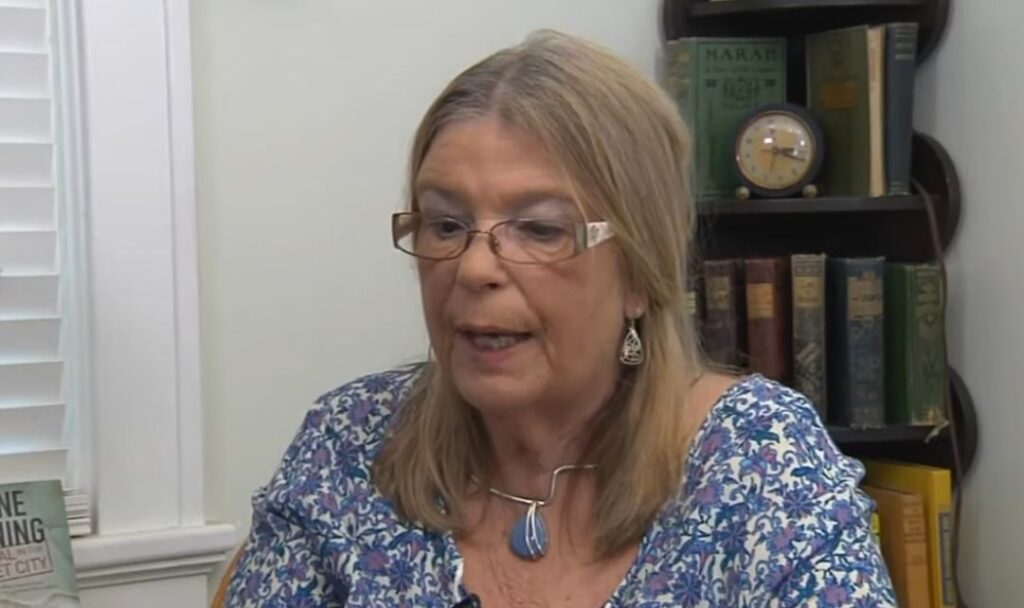
Because of her extensive library of true crime books and the genuineness with which she handles each case, Diane Fanning’s voice carries a weight that is particularly evident in her podcast discussions. She re-examined her first terrifying letter to serial killer Tommy Lynn Sells, whose letter confessed to crimes no one else had admitted, on Wicked Words. Julie Rea’s erroneous conviction was significantly altered by her confession, serving as a startling reminder that sometimes written words can accomplish what the legal system was unable to.
Her appearances on various podcasts demonstrate a career based on tenacity, compassion, and unrelenting investigation. She talked about discovering facts in the Julie Rea case that severely damaged the prosecution’s credibility on Gone South. She found evidence by speaking with Sells directly, which changed the direction of justice. The narrative is especially inventive in demonstrating how crime writing, which is sometimes written off as voyeuristic, can actually act as a safeguard against structural mistakes.
Diane Fanning – Bio and Career Information
| Name | Diane Lynn Fanning (née Butcher) |
|---|---|
| Born | June 21, 1950, Baltimore, Maryland, USA |
| Residence | Bedford, Virginia |
| Profession | True crime author, crime novelist, advocate |
| Education | Lynchburg College, Virginia – Chemistry major |
| Notable Works | Through the Window, Written in Blood, Mommy’s Little Girl, Death on the River |
| Awards | Edgar Award nomination (2006), Defenders of the Innocent Award (2011), Freedom Fighter Award (2001) |
| Special Recognition | Testimony and writing helped exonerate Julie Rea; honored by Illinois Innocence Project |
| Podcast Features | Wicked Words, Gone South, True Murder, The Alarmist, Women Road Warriors |
Fanning’s ability to combine reflection and fact frequently astounds listeners. She talked about the unnerving experience of sitting across from Sells on Women Road Warriors, pointing out how his cool head was incredibly effective at concealing hideous urges. Her work is incredibly resilient in a genre that frequently runs the risk of glamorizing darkness because of her open recognition of the emotional toll.
Her ability to relate cases to more general cultural obsessions is one of the things that makes her voice so captivating. She explained how high-profile trials conflate justice and performance when she revisited the Casey Anthony case on The Alarmist, putting the media circus in perspective. That analysis highlighted how public perception can skew legal outcomes and was remarkably similar to commentary surrounding O.J. Simpson and Johnny Depp’s courtroom dramas.
Fanning’s podcasts offer resilience lessons in addition to retrospectives. Her story of abandoning a successful advertising career in which she won over 70 Addy Awards shows how adaptable she is when it comes to switching to crime writing. Fanning demonstrates that, when combined with passion, reinvention can be incredibly successful in creating new cultural narratives, much like Gillian Flynn went from journalism to fiction or Michael Crichton went from medicine to thrillers.
She examined the Kathleen Peterson case, Written in Blood, on True Murder, exposing the painstaking effort required to reconstruct the events. Her meticulousness, from speaking with witnesses to looking at evidence that was missed, demonstrates how true crime writers frequently act as cultural archivists, preserving tales with a level of accuracy that official reports occasionally fall short of. Her storytelling is not only captivating but also incredibly dependable for audiences looking for knowledge and comprehension because of her discipline.
In conversations about the Julie Rea case, her advocacy role is most evident. Fanning’s use of her platform has significantly changed how people view true crime as a genre, demonstrating that it can be a force for justice. She was given the Defenders of the Innocent Award by the Illinois Innocence Project, which puts her in the company of people like Bryan Stevenson, whose legal work has changed the discourse surrounding wrongful convictions. Because it uses narrative to reframe true crime as activism rather than entertainment, this connection is especially advantageous for readers and listeners.
Her recent podcasts cover a wide range of topics, including the strange astronaut love triangle involving Lisa Nowak and the drowning case of Angelika Graswald. Her ability to seamlessly transition between personal psychology and cultural commentary is evident in every episode. She makes sure her stories have resonance beyond the crime itself by relating obsession, desperation, and trauma to universal questions like why people break, what motivates jealousy, and how systems fail.
Her writing style, which she frequently discusses in interviews, combines the inventiveness of a novelist with the discipline of an investigative journalist. She broadens her audience by forming strategic alliances with podcast hosts, attracting listeners who may never pick up a true crime book but who come away from the discussion with a noticeably better understanding of criminal behavior and judicial shortcomings.
The persistent demand for crime stories highlights the work’s societal relevance. Even though streaming services produce shows like Dahmer and Making a Murderer, Fanning’s contributions are notable because they are based on empathy. She is very explicit in warning against treating tragedy as entertainment and reminding viewers that every case involves actual victims and families. This position effectively strikes a balance between moral responsibility and cultural fascination.
Her ability to link creativity and crime writing puts her in conversation with cultural figures outside of her genre. She frequently uses characters like Wonder Woman or Sherlock Holmes in her essays and interviews to highlight how archetypes influence our creativity. This viewpoint demonstrates her conviction that narrative, whether factual or fictional, should inspire awareness and fortitude in addition to narrating events.
